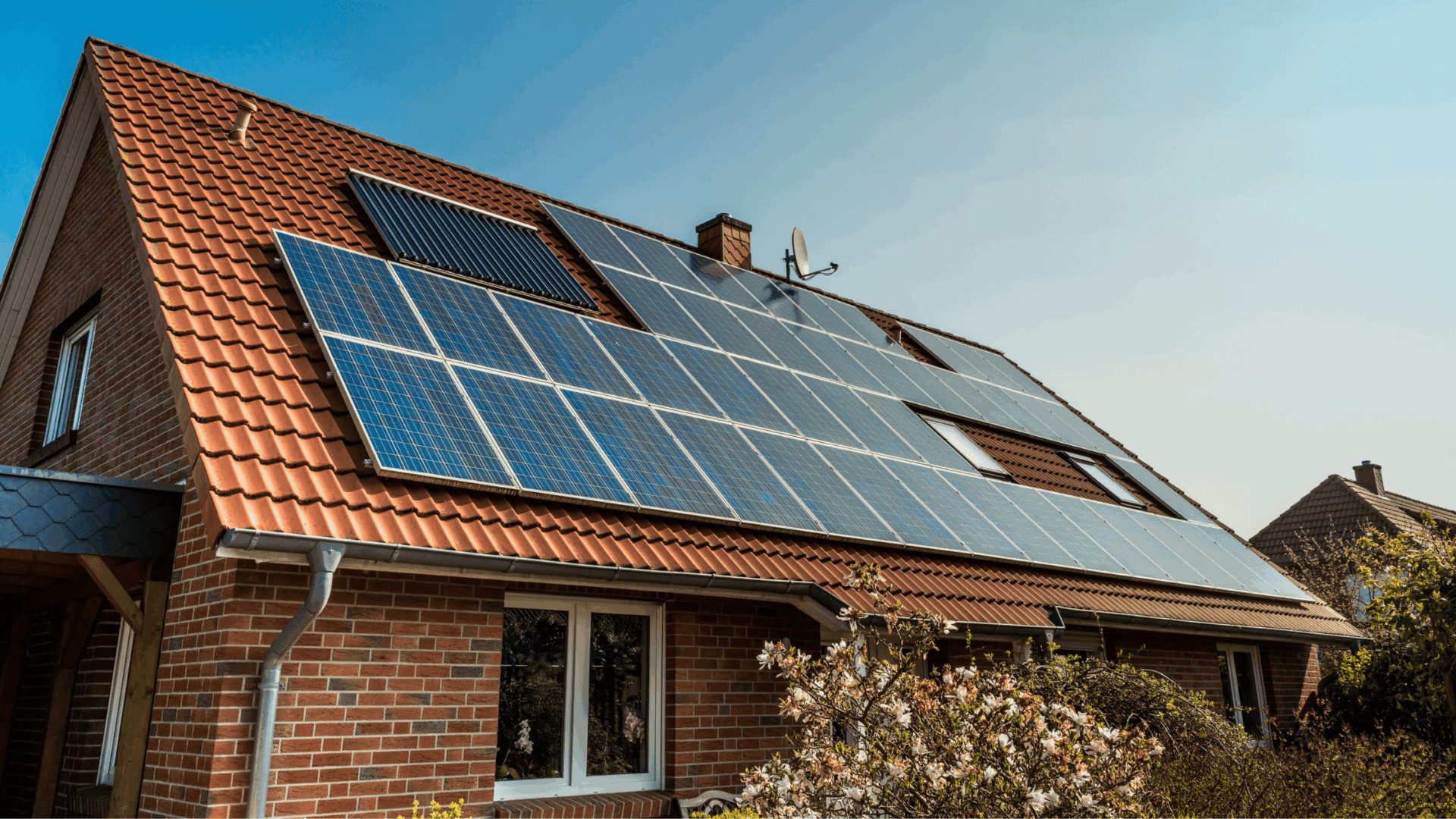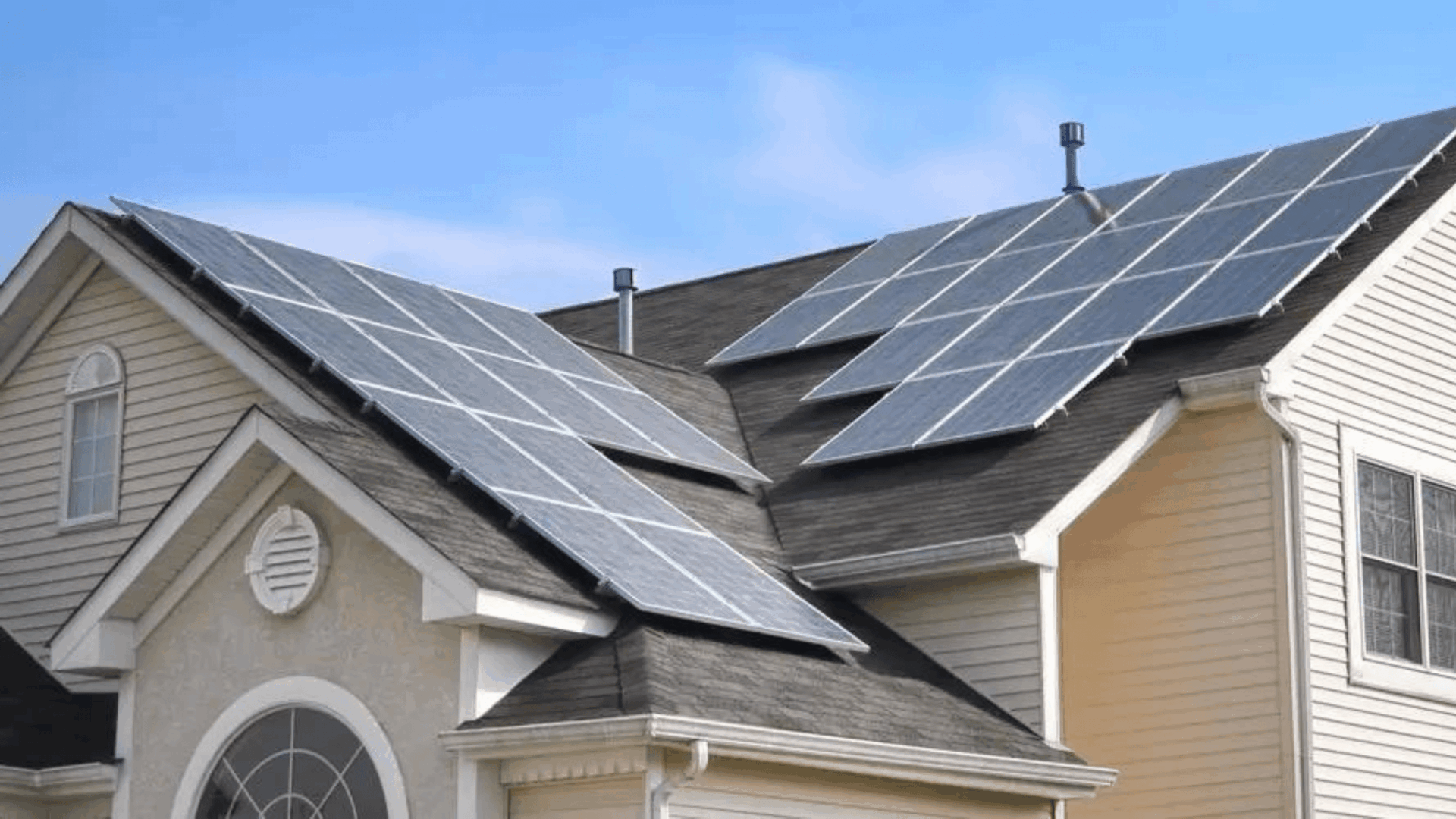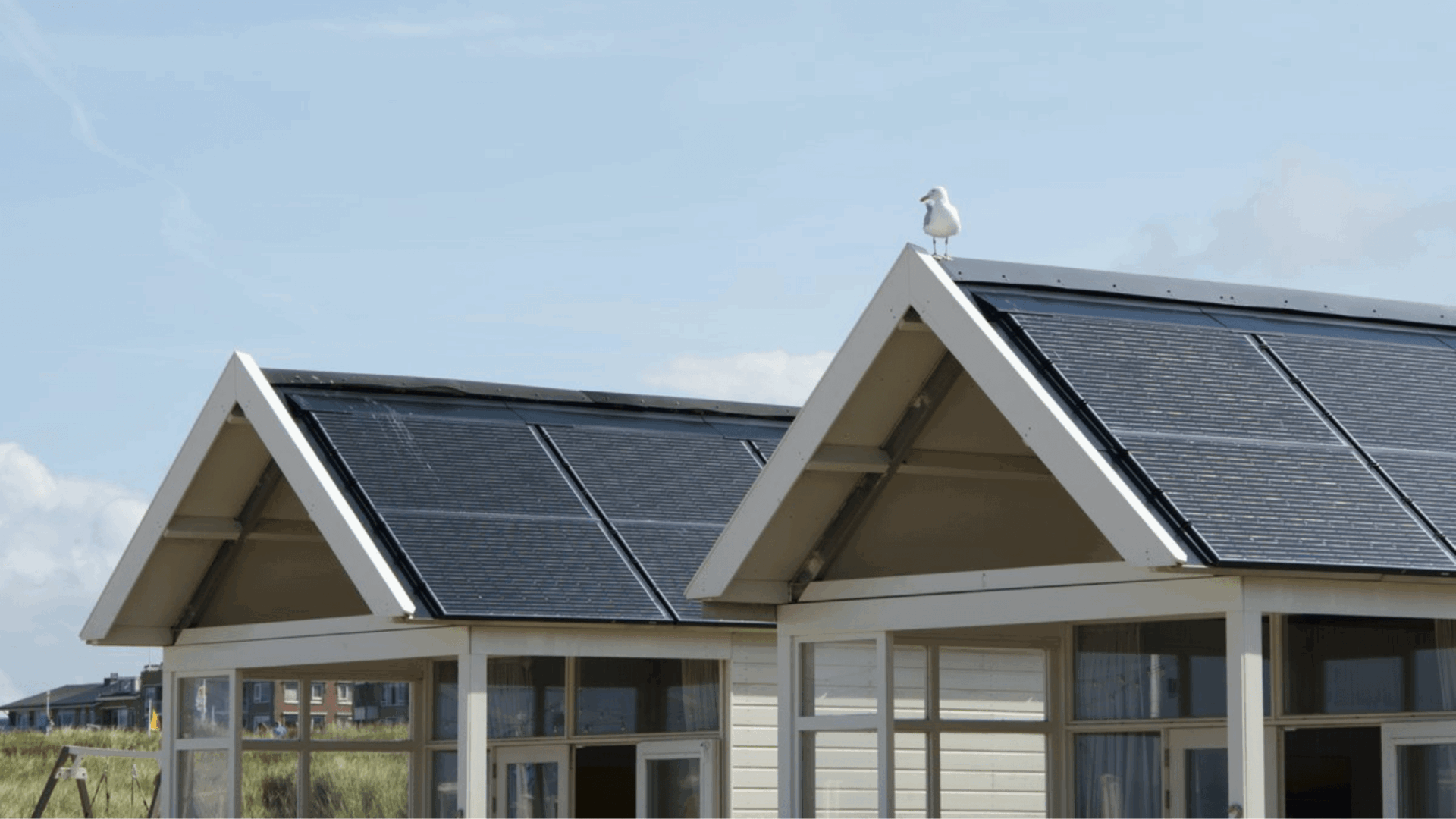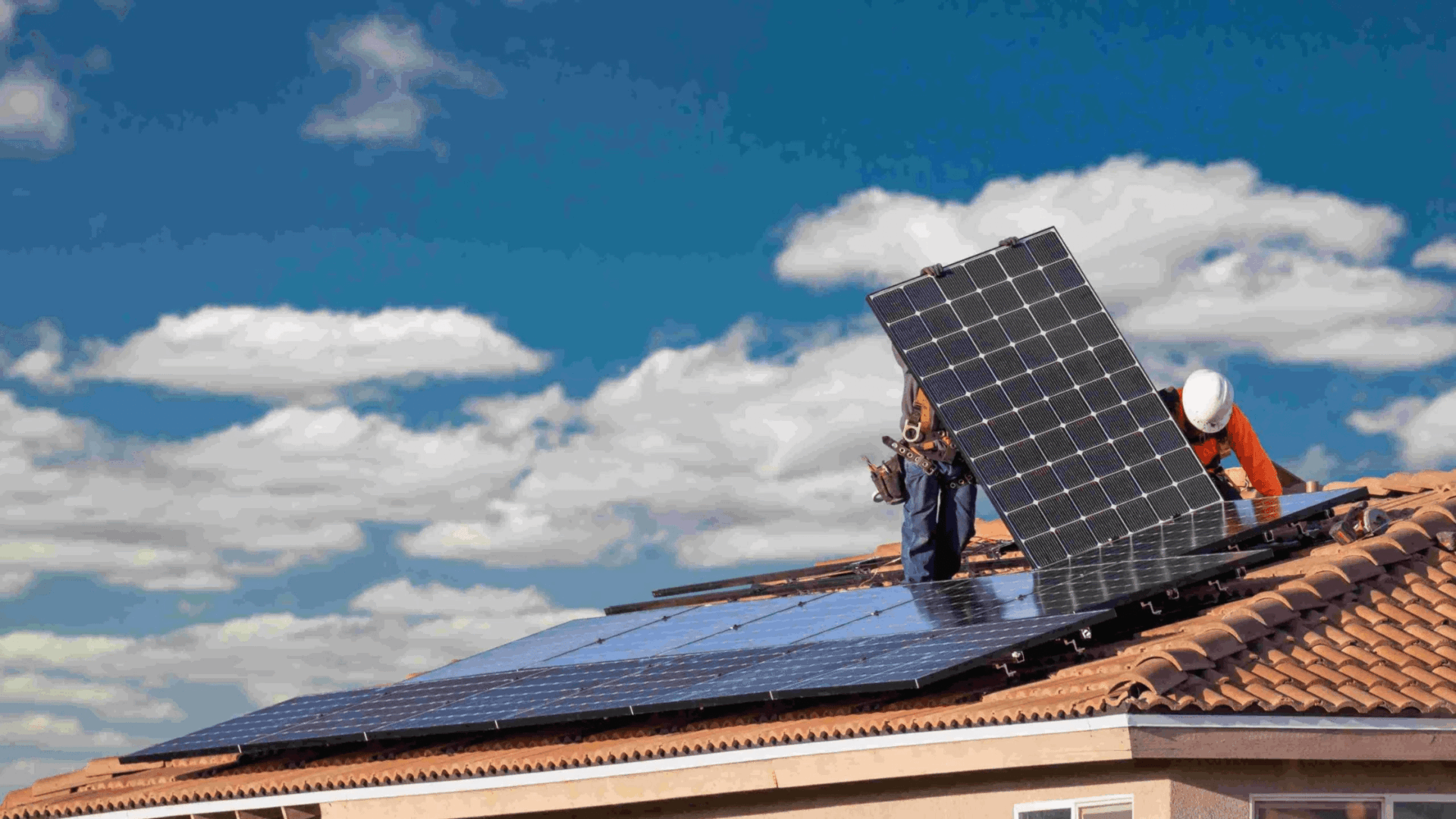The Illuminating World of Solar Power Systems for Home
Solar Power System for Home: Empowering Your Energy Future
In the heart of the sustainable energy revolution, solar power systems for homes are setting the stage for a brighter, cleaner, and more cost-effective future. By turning your home into a power generation hub, these systems are not just illuminating your living space; they’re also brightening the planet’s prospects.
The Solar Power Transformation
Imagine your home as a haven that effortlessly captures and converts the sun’s energy into a source of power that illuminates your life, reduces your carbon footprint, and slashes your energy bills. The journey begins with a basic understanding of solar power systems.
Solar Power System Basics
So, what exactly is a solar power system for your home? In simple terms, it’s a marvel of modern engineering, designed to harness sunlight and convert it into clean, usable electricity. The key players in this energy production are the solar panels. These unassuming devices are mounted on rooftops, transforming sunlight into electrical power.
The Photovoltaic Magic
Solar panels work their magic through a process known as the photovoltaic effect. When sunlight strikes the solar cells on these panels, it excites electrons, creating a flow of direct current (DC) electricity. This DC electricity is then converted by an inverter into the alternating current (AC) that powers your home.
The radiance of solar power goes beyond your rooftop. Let’s explore how it benefits you, your wallet, and the planet in the upcoming sections.
Brighter Days Ahead: The Benefits of Solar Power Systems for Home
Solar Power System for Home: A Wise Financial Choice
Your solar journey isn’t just about embracing clean energy; it’s also a smart financial decision. Let’s dive into the radiant benefits of solar power systems for your home, shedding light on the numerous advantages they offer.
1. Financial Benefits
The financial advantages of installing a solar power system for your home are substantial. By generating your electricity, you can significantly reduce your energy bills. In some cases, you might produce more electricity than you consume, enabling you to sell the excess energy back to the grid. This not only cuts costs but could even put money back in your pocket.
2. Environmental Impact
Embracing solar power also means you’re reducing your carbon footprint. Solar power is clean, renewable, and doesn’t produce harmful emissions. By utilizing this sustainable source of energy, you’re not just saving money; you’re also making a significant contribution to a greener, more sustainable planet.
3. Energy Independence
Solar panels grant you a degree of energy independence. You become less reliant on traditional energy sources and more self-sufficient. This energy independence can protect you from rising energy prices and provide stability during power outages.
4. Government Incentives and Rebates
Governments, including the Australian government, are actively encouraging the adoption of solar power systems for homes. They offer incentives, rebates, and tax credits to make the switch even more financially appealing. These incentives can significantly reduce the upfront cost of installation, making solar power more accessible to a broader audience.
In the following sections, we’ll explore how to assess if your location is suitable for solar, delve into the financial aspects, and discuss how to weather the Australian climate with solar panels.
Chasing the Sun: Factors to Consider with Solar Power Systems
Is Solar Power Suitable for Your Location?
The efficiency of your solar power system depends on various factors, one of which is the amount of sunlight your location receives. In this section, we’ll delve into what makes a location suitable for solar panels.
Sunlight Availability
Before diving into solar power, it’s crucial to assess how much sunlight your location receives. Naturally, more sunlight means higher energy generation. However, even on cloudy days, modern solar panels are designed to capture diffused and indirect sunlight, ensuring a continuous power supply for your home.
Roof Condition: The Foundation of Solar Installation
Your roof serves as the foundation for solar panel installation, so it must be in good condition. We’ll discuss the essential role your roof plays in hosting your solar panels.
Evaluating Your Roof
Solar panels add extra weight to your roof, which might require reinforcement or maintenance. If your roof needs repairs or replacement, it’s advisable to address these issues before proceeding with your solar installation. An experienced solar installer can assess your roof’s condition and recommend necessary actions.
Potential Shading Issues
Shading from trees, nearby buildings, or other obstructions can affect your solar panel’s efficiency. In this section, we’ll explore the implications of shading on your solar power system and how to mitigate its impact.
Shading’s Impact on Efficiency
Shading can lead to energy loss by blocking sunlight from reaching your solar panels. It’s essential to assess your location for potential shading issues, as unobstructed access to sunlight is critical for optimal system performance.
In the upcoming sections, we’ll delve into the financial aspects of solar power, including the initial investment, return on investment, and government incentives and rebates that can make your solar journey even more rewarding.
Financial Aspects of Solar Power for Your Home
Understanding the Initial Investment
Before you embark on your solar journey, it’s essential to grasp the financial aspects. The initial cost, return on investment, and government incentives play a crucial role in making solar power an attractive choice for homeowners.
The Initial Investment
The cost of solar panels can vary, and it’s a significant consideration for homeowners. Factors such as the size of the system, the type and quality of panels, installation costs, and your location all influence the price. However, it’s worth noting that the cost of solar panels has become more affordable in recent years, making it a compelling investment.
Return on Investment (ROI)
Solar panels offer a high return on investment over their lifespan. By reducing your energy bills and potentially earning money by selling excess energy back to the grid, you can recoup your initial investment. We’ll delve deeper into the economic benefits of solar power systems.
Economic Advantages
The financial advantages of a solar power system go beyond reduced energy bills. By generating your electricity, you can save substantial amounts over the system’s lifespan. We’ll explore how this adds up and contributes to your financial well-being.
Government Incentives and Rebates
Many governments, including the Australian government, offer incentives and rebates to encourage solar adoption. These incentives can significantly reduce the initial cost of installing a solar power system for your home. In this section, we’ll provide insights into how these incentives work and how to access them.
Reaping the Rewards
Government incentives and rebates can be a game-changer for homeowners considering solar power. We’ll discuss the different programs available and how to navigate the application process, ensuring you maximize your savings.
As we progress, we’ll explore how solar panels handle weather challenges in Australia, discussing their resilience in the face of hail and storms and addressing temperature effects.
Weathering the Storm: Solar Panels in the Australian Climate
Solar Panels in the Face of Hail and Storms
Australia’s climate can be challenging, with the occasional hailstorm and extreme weather events. In this section, we’ll discuss how solar panels are built to withstand these weather challenges.
Hail and Solar Panels: A Resilient Partnership
Solar panels are designed to be durable and able to withstand hailstorms. They undergo rigorous testing to ensure they can endure impact, and many come with warranties to cover any damage from hail.
Storm-Resistant Mounting
The mounting systems for solar panels are designed to be robust and secure. They are engineered to keep the panels firmly in place, even during high winds and storms. We’ll delve into how these mounting systems provide stability.
Temperature Effects on Solar Panels
Australia’s climate varies from scorching heat to colder regions. Solar panels are built to perform optimally across this spectrum. We’ll discuss how they handle temperature fluctuations and the impact of heat on solar panel efficiency.
In the following sections, we’ll explore maintenance tips for your solar panels, real-time monitoring options, and conclude by summarizing the key takeaways of embracing solar power for your home.
Caring for Your Solar Stars: Maintenance and Longevity
Solar Panel Maintenance: A Shine That Lasts
While solar panels are known for their durability, regular maintenance ensures they continue to perform efficiently. In this section, we’ll explore the key aspects of solar panel maintenance.
Regular Cleaning
Dust, dirt, and debris can accumulate on the surface of solar panels, reducing their efficiency. Regular cleaning is essential to ensure your solar panels capture the maximum amount of sunlight.
Safety Considerations
When cleaning your solar panels, safety should be a top priority. We’ll provide guidelines on how to safely clean your solar panels and when it’s best to leave this task to professionals.
Inspecting for Damage
Regular inspections help identify any damage or issues with your solar panels. Cracked glass, loose connections, or other problems can impact performance. We’ll guide you through the inspection process and what to look out for.
Professional Maintenance
In some cases, it’s best to rely on professional maintenance services. We’ll discuss when to call in the experts to ensure your solar panels remain in optimal condition.
Real-Time Monitoring: Keeping a Close Eye on Your Solar Stars
Real-time monitoring systems allow you to track the performance of your solar panels. These systems provide valuable insights into energy production and can alert you to any issues that require attention.
The Benefits of Real-Time Monitoring
We’ll delve into how real-time monitoring systems work and the advantages they offer, from maximizing energy production to ensuring your solar panels operate smoothly.
As we conclude our journey through solar power for your home, we’ll summarize the key points and insights you’ve gained, emphasizing the positive impact solar panels can have on your energy bills, the environment, and your overall quality of life.









